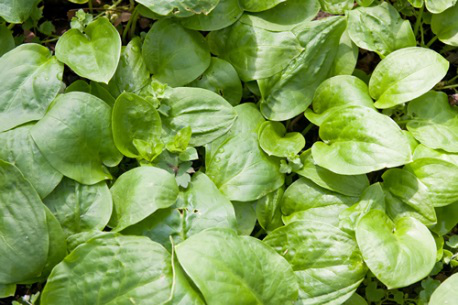Description
Botanical: Plantago major
Other common names: Greater Plantain, Common Plantain, Ripple Grass, Cuckoo's Head, Waybread,
Way broad, Rat-tail Plantain, Englishman's Foot, White Man's Foot, Snake Weed, Broad-leaved Plantain, Ribwort, Dooryard Plantain
Plantain, contains a high amount of mucilage, which soothes and cools mucous membranes, while at the same time its astringency helps to relieve diarrhea, excess menstrual flow, hemorrhoids and incontinence in children and adults. It is also used to soothe the lungs while effectively loosening and expelling phlegm and congestion. Plantain helps to control vaginal and other types of infection, remove obstructions from the liver, kidney and bladder, and possibly help in managing weight control.
Country of Origin: Bulgaria
Beneficial Uses:
Plantain leaves contain tannins and is considered an astringent that is able to draw tissues together (both internally and externally). As such, they can help to stop bleeding (including bleeding from mucous membranes) and control excess menstrual flow. It has also been used to relieve colitis, hemorrhoids, diarrhea, dysentery, vomiting and bed wetting in children and incontinence in the aged.
Plantain increases urine flow, and its potent antiseptic properties make it effective in easing uterine infections, urinary tract infections, syphilis and bladder infections. As an antiseptic diuretic, it is beneficial for female disorders with fluent vaginal discharges and internal problems symptomatic of the urinary tract, including cystitis and leukorrhoea.
Plantain may also slow the growth of tuberculosis bacteria and Staphylococcus infection. The increased urine flow also helps to rid the body of excess mucus and fluids, which is useful in cases of edema (the accumulation of fluid in tissues that cause swelling) and excess water weight.
Plantain may provide weight loss support. An Italian study found that Plantain served effectively in contributing to weight loss in conjunction with a prescribed dietary regimen. Plantain contains salicylic acid, the natural forerunner of synthetic aspirin, and as such, has been effective in relieving pain, including neuralgic pain.
Used externally, Plantain has a long and venerable history. The tannins tighten tissues, but the mucilage acts as a demulcent and helps to balance the astringent actions and heals and soothes bee stings, bites, and poison ivy. The astringency also has a styptic effect when used topically and acts to stanch hemorrhage and ease wounds and bleeding cuts by contracting blood vessels. It makes a fine eyewash for pink eye; and it is also believed to help those who wish to "quit the habit" to stop smoking by including Plantain in a gargle.
Contraindications:
Currently, there are no known warnings or contraindications with the use of Plantain.


